THE WRECKAGE OF PHILOSOPHY
Carlo Michelstaedter and the Limits of Bourgeois Thought
The Wreckage of Philosophy
Carlo Michelstaedter and the Limits of Bourgeois Thought
MIMMO CANGIANO
UNIVERSITY OF TORONTO PRESS
Toronto Buffalo London
University of Toronto Press 2019
Toronto Buffalo London
utorontopress.com
Printed in the U.S.A.
ISBN 978-1-4875-0464-9

Printed on acid-free, 100% post-consumer recycled paper with vegetable-based inks.
Toronto Italian Studies
Library and Archives Canada Cataloguing in Publication
Cangiano, Mimmo, author
The wreckage of philosophy : Carlo Michelstaedter and the limits of bourgeois thought / Mimmo Cangiano.
(Toronto Italian studies)
Includes bibliographical references and index.
ISBN 978-1-4875-0464-9 (cloth)
1. Michelstaedter, Carlo, 18871910 Criticism and interpretation.
I. Title. II. Series: Toronto Italian studies
PQ4829.I38Z65 2019 851'.912 C2018-904203-6
This book has been published with the assistance of The Hebrew University of Jerusalem.
University of Toronto Press acknowledges the financial assistance to its publishing program of the Canada Council for the Arts and the Ontario Arts Council, an agency of the Government of Ontario.
To Roberto Dainotto
Contents
Acknowledgments
Many thanks first of all to Fredric Jameson, who first had the idea for this book and who encouraged me to write it. I would like to thank Luca Somigli of the University of Toronto, Federico Luisetti of the University of North Carolina at Chapel Hill, and Michael Hardt of Duke University for guiding me through this research project. I am in great debt to Thomas Harrison of UCLA, whose passion for Michelstaedters thought has always been a wonderful example. Several sections of this book were discussed and presented at lectures, colloquia, seminars, and sometimes courses that I gave at Duke University and at my own institution, the Hebrew University of Jerusalem. I would like to thank the colleagues and friends who offered me these opportunities for debate, as well as the researchers and students who took part in them. Though unable to mention everyone, I would particularly like to remember Saskia Ziolkowski of Duke University; Valerio Cappozzo of the University of Mississippi, Giuseppe Gazzola of Stony Brook University, and Rossella Riccobono, organizer of the conference Science in Culture at the University of St Andrews, Scotland. Besides seminars and conferences, this book owes much to the reflections on modernist philosophy that I have been conducting for several years now together with Achille Castaldo, Guido Mattia Gallerani, Daria Biagi, Francesco Frisari, Stefano Ercolino, Alberto Comparini, Can Evren, Bennett Carpenter, Danila Cannamela, Lorenzo Mari, Vincenzo Salvatore, and Stephen Marth. I extend to them my friendship and all my gratitude. I also owe a debt of gratitude to Mark Thompson, attentive reader of my manuscript, for having accepted it for the University of Toronto Press. Finally, I would like to thank my beloved wife, Laura Moure Cecchini, for our life between the desert, the snow, and the sea of Parmenides (and I mean literally).
THE WRECKAGE OF PHILOSOPHY
Carlo Michelstaedter and the Limits of Bourgeois Thought
Introduction
Everything is relative and confused down here.
Alberto Michelstaedter (Carlos father)
Everything is preferable to the truth.
Franz Joseph I (Emperor of Austria)
Carlo Michelstaedter was born into a bourgeois Jewish family with pro-Italian leanings in 1887 in Gorizia, when that city was still part of the Austro-Hungarian Empire. He had an elder brother, Gino, who committed suicide in New York in 1909, and two sisters, Elda (who would be deported to Auschwitz along with their mother) and Paula (who would escape to Switzerland). As an adolescent he attended the local liceo (secondary school) and became friends with two other Gorizians: Nino Paternolli (who owned the garret where Michelstaedter would write his dissertation, Persuasion and Rhetoric ) and Enrico Mreule (who would go on to live an adventurous life, first in Argentina and then in Dalmatia). Their friendship, which is narrated in the Epistolario (his Tagebuch ), was used as fodder by Claudio Magris for his novel Un altro mare .
Michelstaedter had decided to study mathematics in Vienna. But in 1905 he changed his mind: he went to Florence instead, where he focused on the humanities at the Istituto di Studi Superiori a common destination for many Austrian intellectuals with pro-Italian leanings (among whom could be counted Scipio Slataper as well as the Stuparich brothers, Giani and Carlo). In the early years of the twentieth century, Florence was the intellectual capital of Italy, where the foundations for modernist Italian literature and philosophy were being laid. The militant journal Leonardo , overseen by Giovanni Papini, though waning, was still active when Carlo moved to Florence. In the pages of Leonardo , Papini and his followers presented readers with articles about the most important thinkers of the time: Henri Bergson, William James, Ernst Mach, and, of course, Friedrich Nietzsche, who in Italy was by then being liberated from Gabriele DAnnunzios decadent reading of his work. Late in 1908, Giuseppe Prezzolini founded La Voce , which would come to serve as a proving ground for the young Italian intelligentsia of the time. It published contributions by authors like Slataper, Stuparich, Giovanni Boine, and Piero Jahier alongside articles by Benedetto Croce and Giovanni Gentile. La Voce served as a forum for a variety of issues, such as theological modernism (Alfred Loisy, George Tyrrell, douard Le Roy), nationalism (in 1910 the Associazione Nazionalista Italiana would be founded in Florence), and the crisis of socialism. Around this time, La Voce published a number of influential writings, including those of Georges Sorel and Otto Weininger, as well as Gaetano Salveminis thoughts on social reform; Ardengo Sofficis on recent artistic developments in France; and Benito Mussolinis on questione trentina . La Voce counted Antonio Gramsci among its admiring subscribers.
Michelstaedter read La Voce (he brought a few issues back with him to Gorizia), and though he remained disengaged from the intellectual battles being waged by this squadron of intellectuals, philosophers, and writers, he shared their cultural coordinates that is, his readings covered more or less the same ground as theirs. That said, his thought cannot be ascribed to any of the modernist orientations vying for ground at the time in what Martin Heidegger would later call the crisis of the foundations. Indeed, in the last years of his life Michelstaedter would move beyond the main philosophical orientations of his era. Instead, the trajectory of his reflections pointed him towards the Frankfurt School, Ludwig Wittgenstein, and Simone Weil. He shared with the latter an interest in Greek thought, as well as a unique concept of justice and a critique of the conjoined operations of specialization and technology.
Studies of Michelstaedter have long approached his thought as a more or less unified whole, neglecting the transformations it underwent during his five years of intellectual activity. The present work posits that we can delineate three general phases in the development of his philosophy. Between 1905 and 1907 his university years Michelstaedters thought was characterized by a decadent, Dannunzian influence, albeit with constant attention to the relationship between the individual and society, to everything social that impedes the individuals expression of singularity.


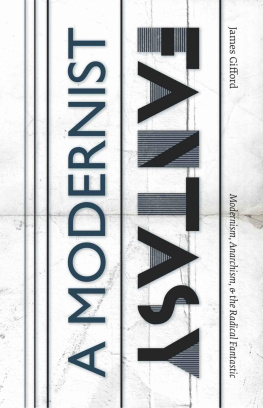
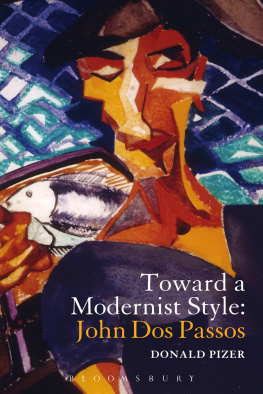
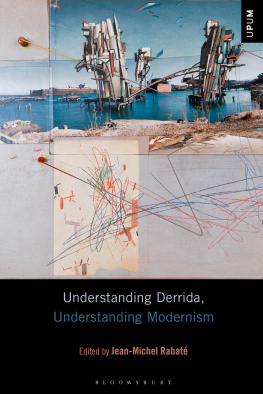
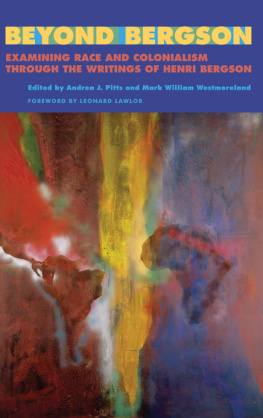
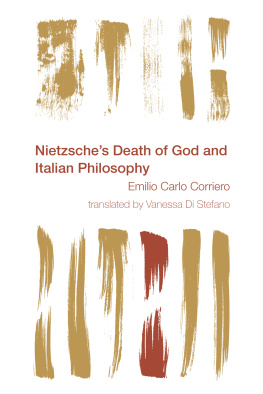
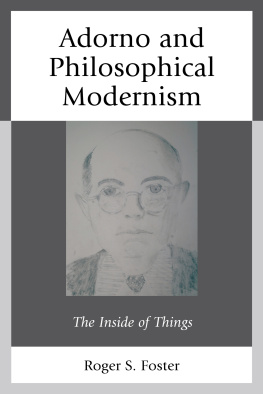
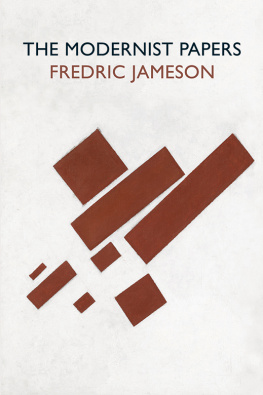
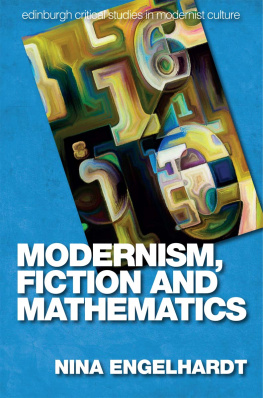
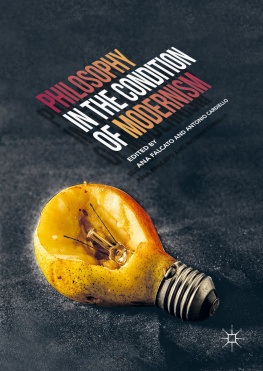
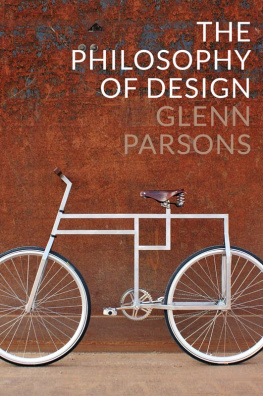

 Printed on acid-free, 100% post-consumer recycled paper with vegetable-based inks.
Printed on acid-free, 100% post-consumer recycled paper with vegetable-based inks.